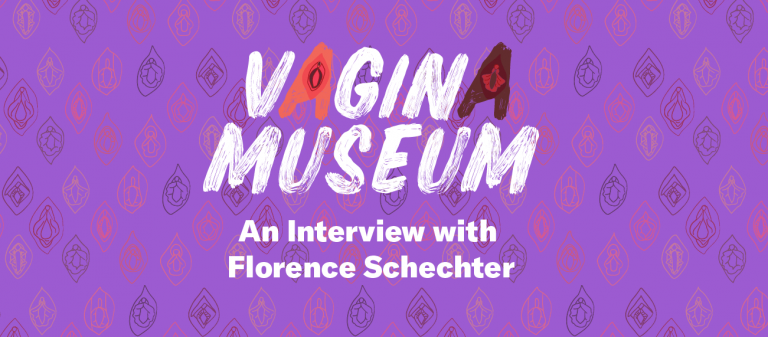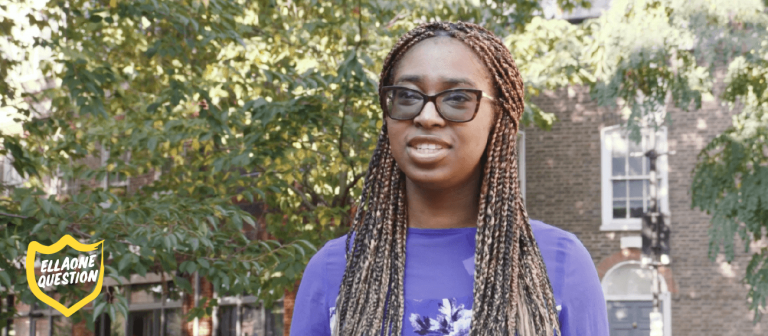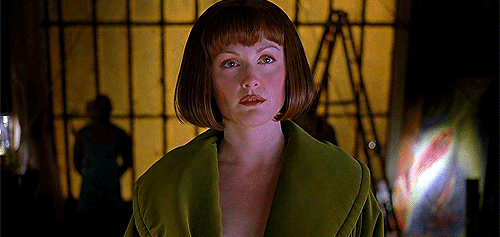Did you know that the German word for ‘labia’ (Schamlippen) literally translates as ‘shame lips’? Yeah. That’s bound to make you feel good about your vagina.
There is still a ton of shame associated with female genitalia, but one woman is hoping to change this by building the world’s first museum dedicated to vaginas.
When Florence Schechter* learned there was a penis museum in Iceland but no equivalent vagina museum anywhere in the world, she decided to do something about it.
Despite never having worked as a museum curator before, Florence became determined to make The Vagina Museum a reality.
Two years later, The Vagina Museum has successfully run two temporary exhibitions and, if they receive enough funding, will be taking over a space in Camden, London this year.

What Will Be Displayed In The Vagina Museum?
Florence doesn’t want to promise anything yet, but she has several exciting vagina-centric ideas.
“We’re planning to have temporary exhibitions, including one about the history of period products which I plan to call ‘A Period In Time’, which will change every six months,” she says, “and we will probably have another small permanent exhibition on what The Vagina Museum is and why it is needed.”
Eventually, Florence hopes to move The Vagina Museum into a large space where they can host permanent exhibitions: “I’m recognising this is about ten years down the line, but we plan on having four permanent galleries: Science, Culture, History and Society,” she says.
“Science will be about anatomy, health, sexuality, childbirth, contraception, menstruation, menopause and so on,” Florence explains, “where you can learn the facts as there’s so much misinformation out there.”
“Culture is about representations in art, music, books, those sorts of things,” she continues, “Society is about the vagina’s place in our society, the language we use, religious rights, legislation, those sorts of things. The History is period products, gynaecological medicine, the history of sex work and so on.”
The Vagina Museum will be inclusive of everyone with vaginas. By including trans and non-binary people on the museum’s advisory board and by making sure all marketing and print materials use inclusive, non-gendered language, the museum will ensure that everyone feels welcome and included.
The Vulva In Sex Education
One of the reasons that The Vagina Museum is so necessary is because loads of people are in the dark when it comes to their parts.
Recent research from Yougov found that 45% of women weren’t sure where the vagina was located, while 43% could not correctly label the labia.
Florence, who went to a Jewish faith school, was not taught about her own external genitalia (i.e. the vulva) at all. “We learned about the internal bits like the uterus and the ovaries and we learned about the menstrual cycle,” she says, “but we literally never looked at the vulva.”
She did, however, learn about the penis and scrotum.
How does a Jewish faith school approach sex education? “Judaism has an interesting insight into sex,” she says, “it’s not against sexual pleasure but it has to be within marriage, so because we were teenagers and not married, they would gloss over it.”
Why did Florence’s school think it was fine to show a penis and scrotum to its students but avoid female anatomy? Florence thinks that, because we don’t tend to see vulvas portrayed in the media or spoken about in sex education, the only time we might see one is if we’re going to have sex with it (or if we’re looking at our own).
“Vulvas are scary!” Florence says, “people look at them and there’s instantly a sexual element to it because the only reason you’d see one is in a sexual situation. I think a lot of people still associate vulvas with sex and all these sorts of things.”
Where does this sense of stigma come from? “So there’s this thing called the patriarchy,” Florence laughs, “and one of the best ways to control a person is to control their body. This shaming our bodies is one of the top ways of controlling women.”
How Can Sex Education Be Improved?
Teachers and parents may feel awkward or uncomfortable talking about sexual pleasure with teenage students, but this discussion can pave the way to a better understanding of consent and healthy romantic relationships.
“I think the top thing we need to talk about is one of the main reasons people have sex and that’s for pleasure. I think we need to be more honest about that fact,” she says.
“If you’re coming into a discussion about consent with the idea that sex is for pleasure,” she continues, “then if you don’t have consent it’s not pleasurable. It’s a good gateway into so many different issues that we need to talk about.”
Why Is The Morning After Pill Stigmatised?
ellaOne’s #MyMorningAfter campaign wants to end the stigma around emergency contraception by spreading accurate information, showcasing how diverse people’s experiences with this product are and, most importantly, by starting a conversation to bring this topic out into the open.

“I had to take emergency contraception once in my life and it was like the scariest thing I’ve ever done. I didn’t know what was happening,” Florence says.
“I had to go into a private room with a pharmacist and he had to ask me questions and then he was like ‘be careful, it might make you sick in the next two hours and if you throw up then you have to come back because it won’t work,” she continues.
“I was so scared about what I would say if it doesn’t work, what if I got pregnant and had to get an abortion. There were so many unanswered questions because I hadn’t talked about it with anyone,” she continues.
Why is taking the morning after pill stigmatised? “There’s this idea that if you’re taking emergency contraception it’s because you were careless or because you were drunk,” says Florence, “when actually that’s not the case most of the time. Most often, we use emergency contraception because our regular form of contraception didn’t work.”
How Do We End The Stigma Around The Morning After Pill? By Talking About It!
Pretending something doesn’t exist and keeping it hidden away leads to stigma, shame and misinformation. If we are going to destigmatize emergency contraception, we need to talk about it.
This can be through sharing your morning after story on this website, joining the conversation on social, or simply bringing it up with your friends.
“I found, when I had taken emergency contraception, I would mention it in conversations and then another friend would be like ‘Oh my god yeah I took that and this happened to me’ and suddenly everyone’s sharing their stories,” says Florence,”we realised it was something that as a group of friends we hadn’t talked about.”
“It was really surprising to me how many of my friends had taken it,” she continues, “that conversation would have never happened if I hadn’t brought it up. I think it’s just about normalising the conversation on a small level and you’ll see it ripple through”
*Florence Schechter does not endorse any brands or products.
By: Sophia Moss
ellaOne® 30mg film-coated tablet contains ulipristal acetate and is indicated for emergency contraception within 120 hours (5 days) of unprotected sex or contraceptive failure. Always read the label.








